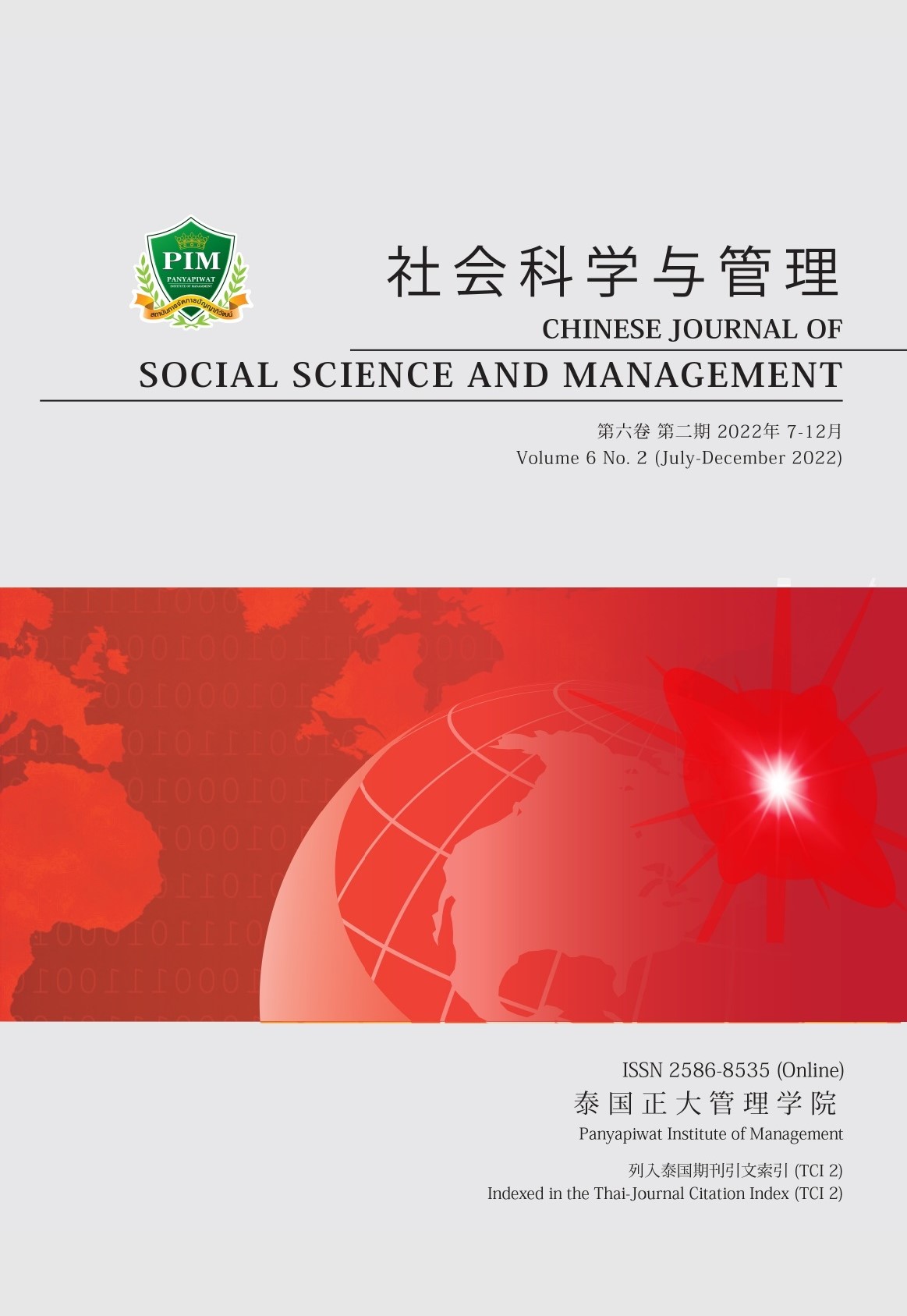THE IMPACT OF INTERNET ENTERPRISE TRAINING ON EMPLOYEE INNOVATION PERFORMANCE——THE INTERMEDIARY OF INNOVATION SELF-EFFICACY
Main Article Content
Abstract
Due to the booming of knowledge economy, the innovation performance of employees is the decisive factor for Internet companies to achieve innovation and development. Based on the psychological perception of employees, this paper uses empirical analysis to draw a conclusion: different dimensions of Internet company employee training have positive effects on innovation self-efficacy and innovation performance, innovation self-efficacy has positive effects on innovation performance, and there are some intermediary effects between employee training and innovation performance.
Article Details

This work is licensed under a Creative Commons Attribution-NonCommercial-NoDerivatives 4.0 International License.
Chinese Journal of Social Science and Management Editorial Division
The Office of Research and Development, Panyapiwat Institute of Management
85/1 Moo 2, Chaengwattana Rd., Bang Talat, Pakkred, Nonthaburi 11120, Thailand
Tel. 02 855 01048 E-mail: cjssm@pim.ac.th
References
Bai, G. Y., & Luo, R. D. (2016). Research on relationship between knowledge workers welfare incentives and innovation performance. Shandong Social Sciences, (5), 175-179, 174. [in Chinese]
Baron, R. M., & Kenny, D. A. (1986). The moderator-mediator variable distinction in social psychological research: Conceptual, strategic and statistical considerations. Journal of Personalityand Social Psychology, 51(6), 1173-1182.
Cagri, B., & Osman, C. (2010). The effects of organizational training on organizational commitment. International Journal of Training and development, 14(4), 309-322.
Han, Y., Liao, J. Q., & Long, L. R. (2007). Model of development and empirical study on employee job performance construct. Journal of Management Sciences in China, (5), 62-77. [in Chinese]
Li, J. Y., & Lai, B. B. (2018). Impacts of total compensation perception and creative self-efficacy on employee innovative behaviors——An empirical study based on manufacturing enterprises in the Yangtze River Delta. East China Economic Management, 32(12), 63-70. [in Chinese]
Ling, L., & Qing, T. (2013). Can training promote employees organizational commitment? The effect of employability and expectation value. Nankai Business Review, 16(3), 127-139. [in Chinese]
Ling, L. (2012). Study on the impact mechanism of training on organizational commitment and turnover intention. Southwestern University of Finance and Economics. [in Chinese]
Janssen, O., & Huang, X. (2016). Us and me: Team Identification and Individual Differentiation as Complementary Drivers of Team Members’ Citizenship and Creative Behaviors. Journal of Management, 34(1), 69-88. https://doi.org/10.1177/0149206307309263
Tierney, P., & Farmer, S. M. (2002). Creative self-efficacy:Its potential antecedents and relationship to creative performance. The Academy of Management Journal,45(6), 1137-1148.
Tierney, P., & Farmer, S. M. (2004). The pygmalion process and employee creativity. Journal of Managemen, 30(3), 413-432.
Wang, H. Q., & Yuan, L. (2016). Charismatic leadership, creative self-efficacy and employee creativity. East China Economic Management, 30(12), 143-147. [in Chinese]
Zhang, R. J. (2016). How does innovation-oriented hrm influence organizational innovation? The roles of innovation climate and organizational structure. Human Resources Development of China, (15), 57-65. [in Chinese]


